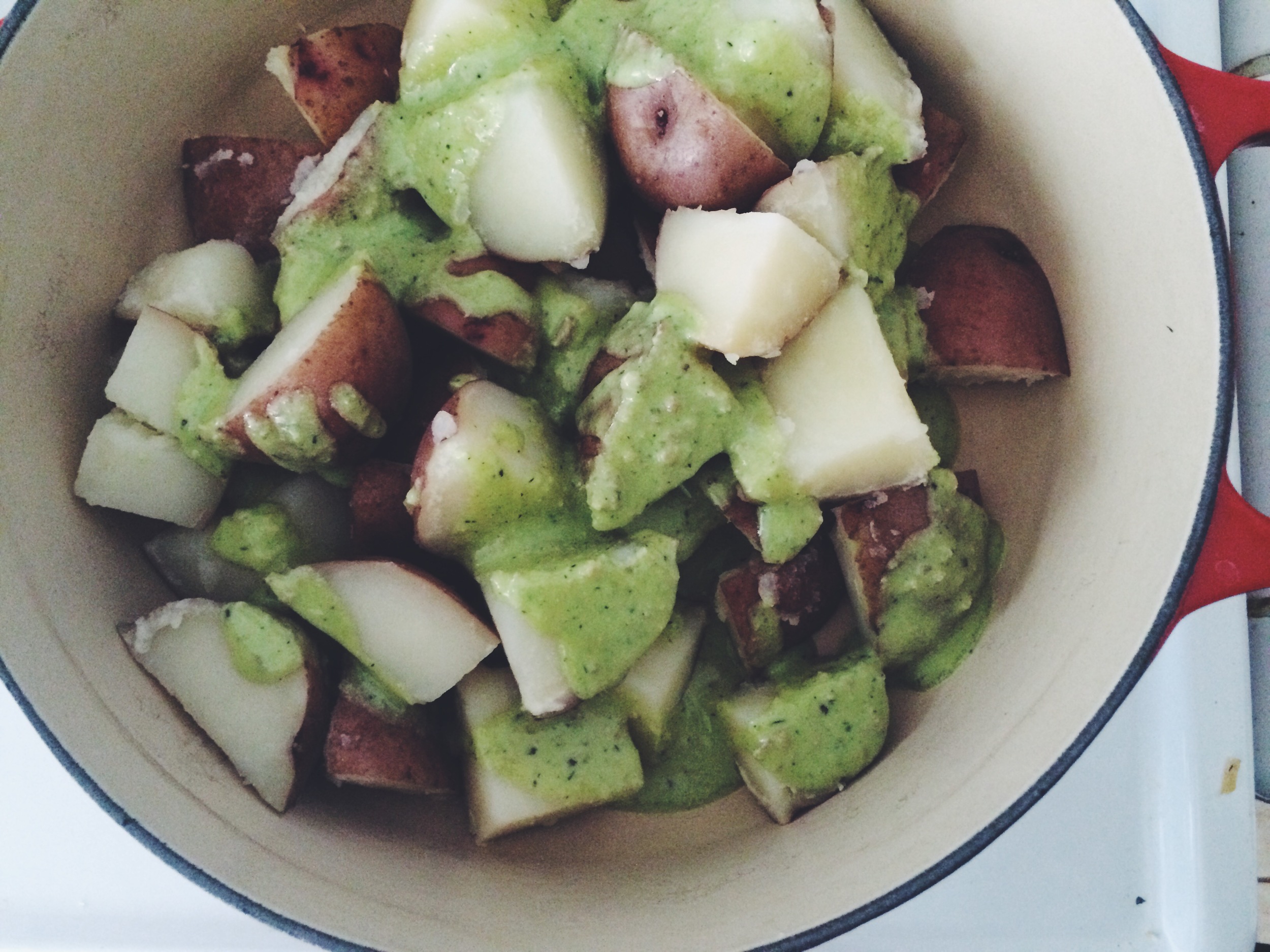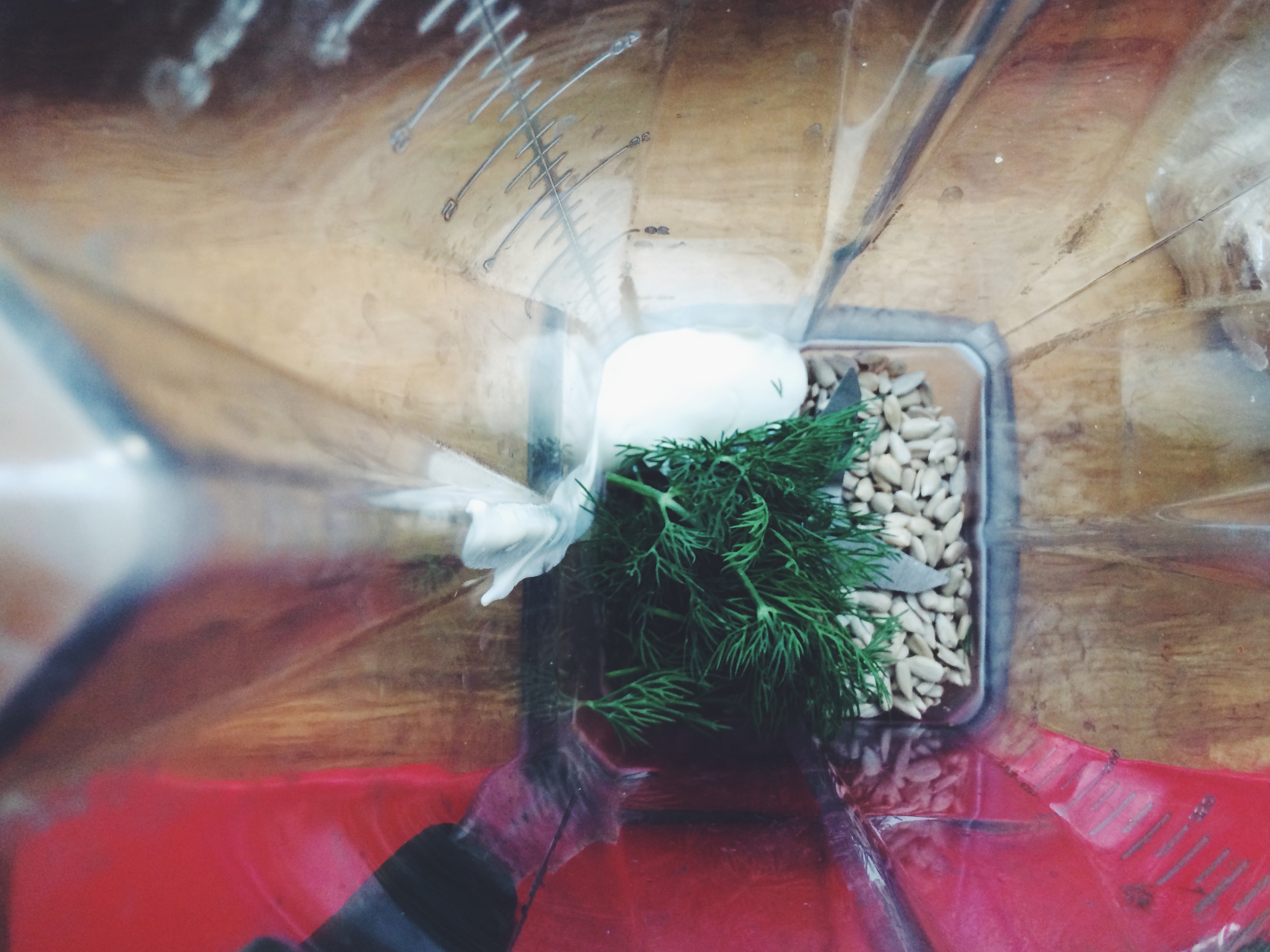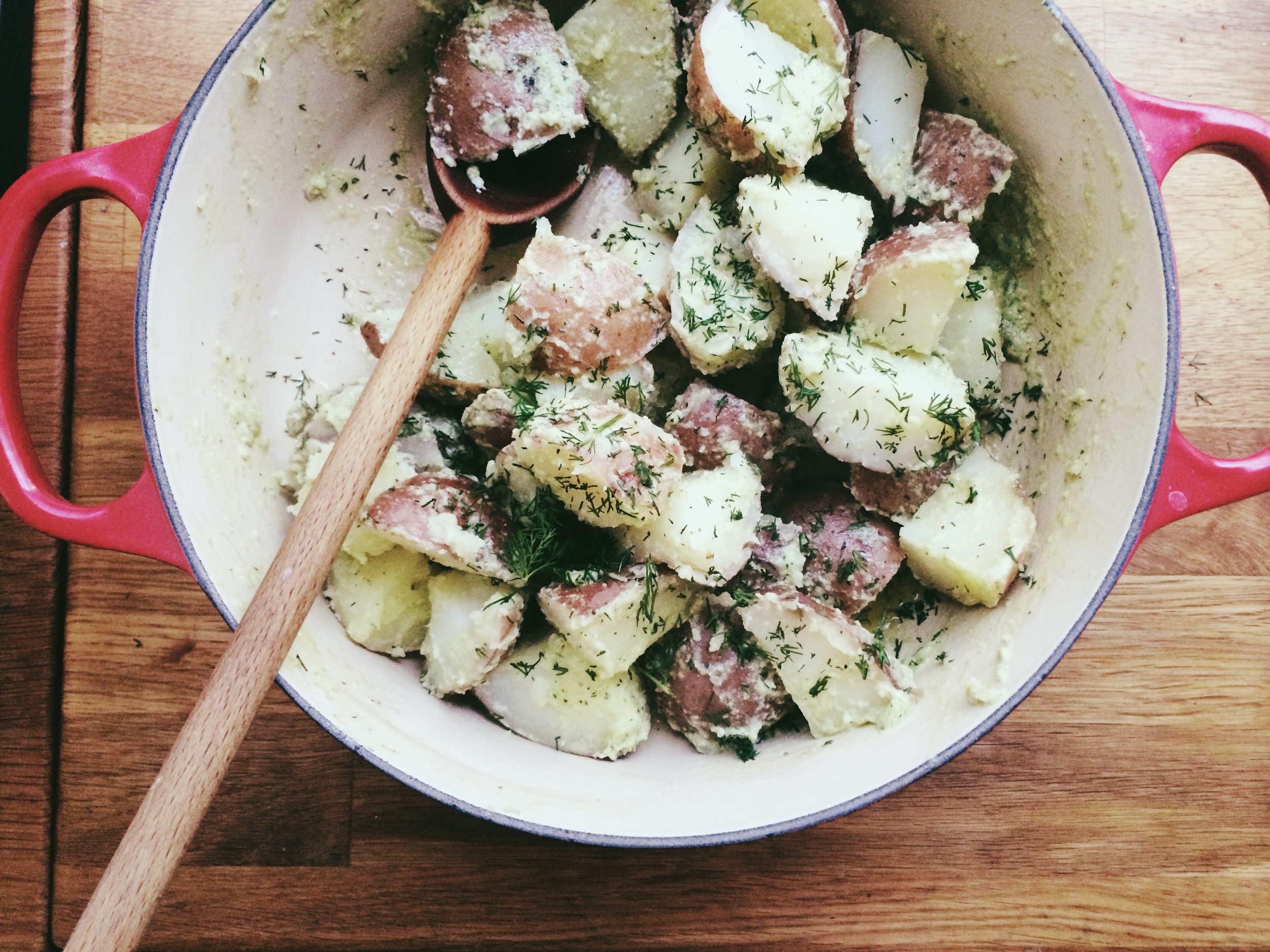Living with Poetry is an occasional series where we explore how poetry infuses our everyday lives. Catch up with past features here.
If you ask me what I've been cooking lately, I might not be able to tell you. There was lasagna a while back, Saturday morning pancakes, and hummus slathered on pita bread. I've also been drinking a lot of almond milk and turmeric-ginger tea. The reason I can't remember my meals is because the past six weeks have been a whirlwind (the mostly good kind). (Also, more on that in an upcoming post.)
On occasion, monumental life events require our full attention. Although cooking remained constant out of sheer necessity (we have to eat, of course), I found myself relying on instinct and old favorites rather than seeking inspiration at the Sunday farmer's market or in my enormous stack of magazines. But now that the dust has settled, I'm starting to find my way back.



I'm not sure why, but I committed to posting a poem a day on Facebook and Instagram during the month of April, my busiest month on record this year, but once the idea shot into my head, I couldn't turn back. In some ways, it kept me grounded to this space, and allowed poetry to seep in for a few minutes each day, so for that I am grateful.
Mary Oliver's poem "Don't Hesitate," resonated with me the most last month. This recent season was one filled with fear and uncertainty alongside profound gratefulness and joy. It's easy to run from the goodness, even though we want it so badly, because we're conditioned to grin and bear it, to not assume we're worthy of happiness. I tried to embrace the unsteadiness as much as I could, and poems like this one helped remind me that even in the midst of change and growth, "joy was not made to be a crumb." That might be the best line of poetry I've read in a long time.
Potato Salad with Creamy Dill Dressing
A recent Good Eggs order arrived with a gift of dill, and the potatoes in my yellow bowl on the counter were begging for a brightly-flavored fate. I've made Heidi's dressing with sunflower seeds before, and thought their addition here would go nicely with the lemon, sour cream, and dill. I've been warming up to dill, and the flavors here are not overpowering. If you'd like a bit more, feel free to adjust. Most of this is mere suggestion.
For the potatoes
2 to 2 1/2 pounds Yukon or red potatoes, quartered
1/4 cup dill, chopped
Salt and freshly cracked pepper
For the dressing
1/4 cup sunflower seeds
1/4 cup dill, lightly packed
2 tablespoons sour cream
Juice of 1 lemon
Drizzle of honey
1/2 cup extra-virgin olive oil
1 to 2 tablespoons warm water
1/4 teaspoon salt
Freshly cracked pepper
Bring a large pot of water to a boil and season generously with salt. Add the potatoes and cook for 12-15 minutes, or until tender when pierced with a fork; drain.
While the potatoes cook, make the dressing. Add the sunflower seeds, dill, sour cream, lemon, and honey to a food processor and pulse to combine. With the motor running, drizzle in the oil. If the dressing is too thick, add warm water a tablespoon at a time. Season with 1/4 teaspoon salt (plus more to taste), and freshly cracked pepper.
Pour the dressing over the warm potatoes and season with additional salt and pepper. Gently toss to combine, and finish with the chopped dill.



